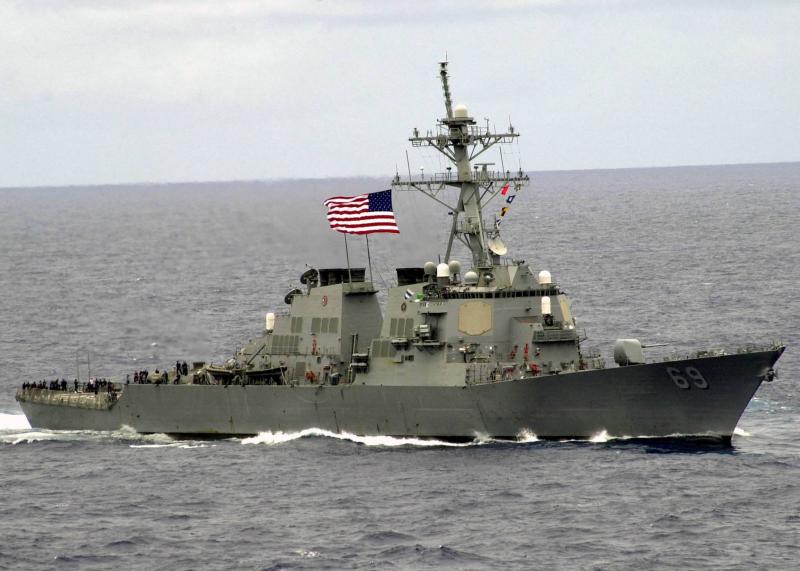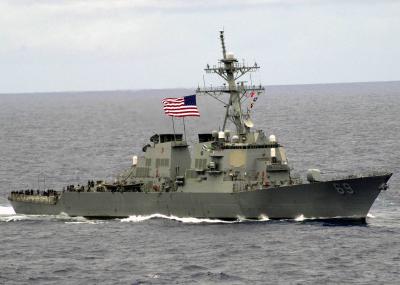The U.S. Navy announced the deployment of the guided-missile destroyer USS Milius in the South China Sea near the Spratly Islands on Monday, aiming to "assert navigational rights and freedoms." They stated that the operation conducted by the destroyer aligns with international law. The U.S. Navy's statement highlighted that "this freedom of navigation operation supports the rights, freedoms, and lawful uses of the sea."
In response, Beijing claimed that the Milius had illegally intruded into the South China Sea and indicated that it is "monitoring and tracking the movements of the U.S. destroyer." Last month, a dispute arose between China and the United States regarding the movements of the Milius, which China asserted had entered its territorial waters near the Paracel Islands.
On Monday, Taiwan's Ministry of Defense reported the presence of dozens of Chinese military aircraft near Taiwan by 10 a.m. local time, noting that some had crossed the median line of the Taiwan Strait and entered Taiwan's air defense identification zones (ADIZ).
The detected aircraft included various models, such as SU-30, J-11, J-10, J-16, TB-001 UCAV, and others. Official media in Beijing indicated that the Chinese military continued its maneuvers around Taiwan on the same day. China also confirmed that aircraft carrying live ammunition simulated strikes near Taiwan.
The Japanese Ministry of Defense revealed that the Chinese aircraft carrier Shandong conducted operations in waters near the Japanese Okinawa Islands on Sunday, coinciding with the Chinese military's exercise simulating aerial and naval strikes on Taiwan. The ministry added that fighter jets and helicopters took off and landed on the carrier 120 times over the weekend, with the carrier and three other warships reaching within 230 kilometers of the Japanese Miyako Island.
Japanese and Chinese senior officials met on Monday to discuss maritime concerns in the disputed waters of the East China Sea. Before the talks, the head of the Chinese delegation, Hong Li'ang, expressed a desire for cooperation with Japan in the maritime region and anticipated a "detailed dialogue" with his counterparts.
A Japanese government spokesperson pointed out that Tokyo continuously monitors Chinese exercises around Taiwan "with great concern." Chief Cabinet Secretary Hirokazu Matsuno emphasized that "the importance of peace and stability in the Taiwan Strait is essential not only for Japan's security but also for the stability of the international community as a whole."
In the last meeting held in November, Hong criticized Tokyo for its comments regarding China's activities in the Taiwan Strait, which separates the island from the mainland, and requested Japan to withdraw its vessels from waters surrounding islands in the East China Sea that both countries claim sovereignty over. China had announced the start of military drills on Saturday, lasting three days in the Taiwan Strait, aimed at "combat readiness" amid tensions with the island following Taiwanese President Tsai Ing-wen's meeting with U.S. House Speaker Kevin McCarthy.




